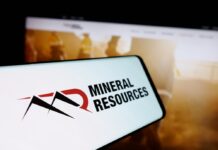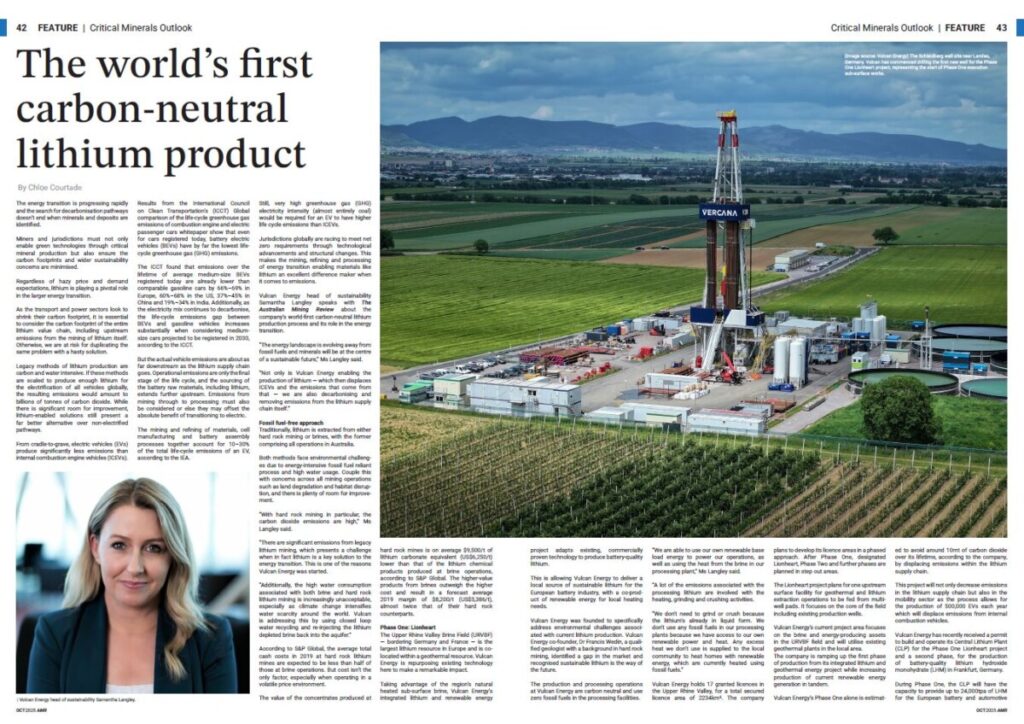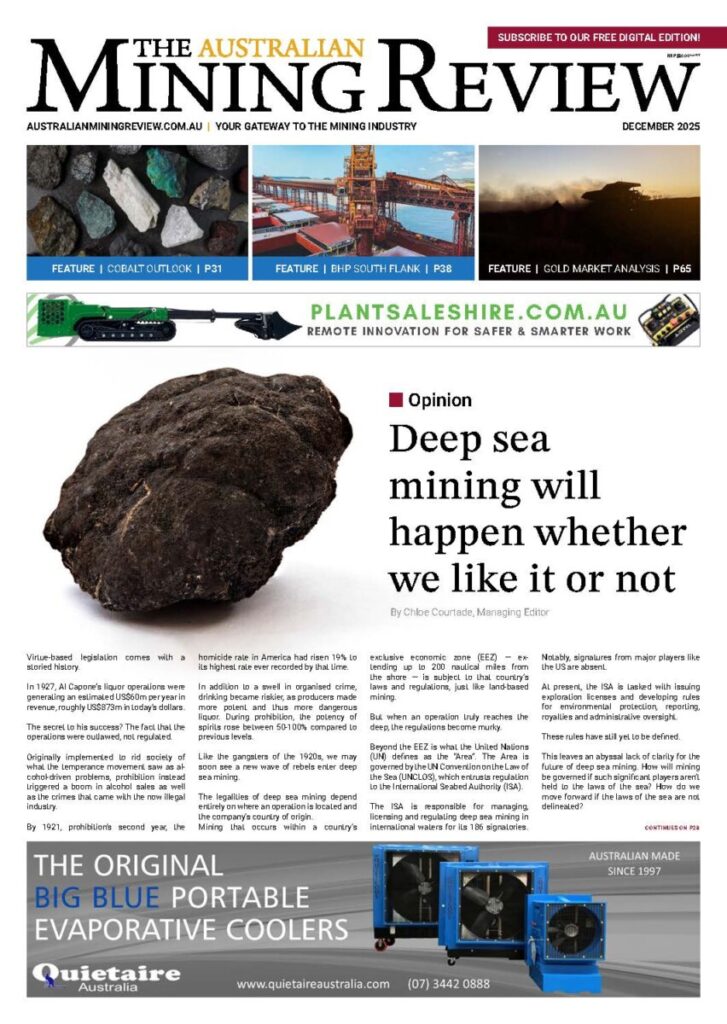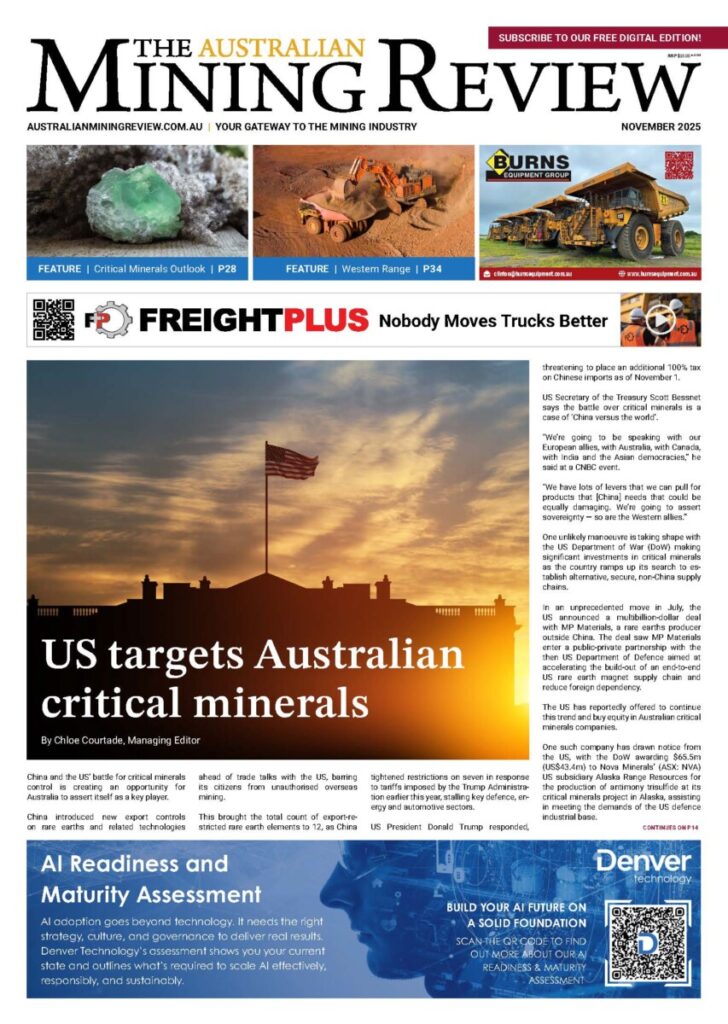The world’s first carbon-neutral lithium product
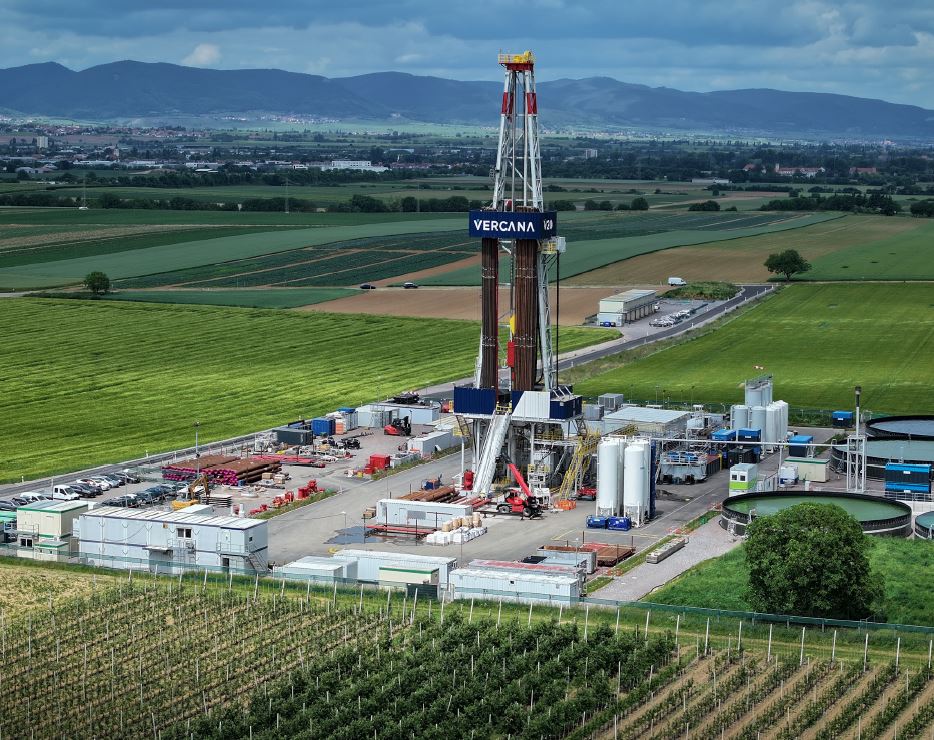
The energy transition is progressing rapidly and the search for decarbonisation pathways doesn’t end when minerals and deposits are identified.
Miners and jurisdictions must not only enable green technologies through critical mineral production but also ensure the carbon footprints and wider sustainability concerns are minimised.
Regardless of hazy price and demand expectations, lithium is playing a pivotal role in the larger energy transition.
As the transport and power sectors look to shrink their carbon footprint, it is essential to consider the carbon footprint of the entire lithium value chain, including upstream emissions from the mining of lithium itself. Otherwise, we are at risk for duplicating the same problem with a hasty solution.
Legacy methods of lithium production are carbon and water intensive. If these methods are scaled to produce enough lithium for the electrification of all vehicles globally, the resulting emissions would amount to billions of tonnes of carbon dioxide. While there is significant room for improvement, lithium-enabled solutions still present a far better alternative over non-electrified pathways.
From cradle-to-grave, electric vehicles (EVs) produce significantly less emissions than internal combustion engine vehicles (ICEVs). Results from the International Council on Clean Transportation’s (ICCT) Global comparison of the life-cycle greenhouse gas emissions of combustion engine and electric passenger cars whitepaper show that even for cars registered today, battery electric vehicles (BEVs) have by far the lowest life-cycle greenhouse gas (GHG) emissions.
The ICCT found that emissions over the lifetime of average medium-size BEVs registered today are already lower than comparable gasoline cars by 66%–69% in Europe, 60%–68% in the US, 37%–45% in China and 19%–34% in India. Additionally, as the electricity mix continues to decarbonise, the life-cycle emissions gap between BEVs and gasoline vehicles increases substantially when considering medium-size cars projected to be registered in 2030, according to the ICCT.
But the actual vehicle emissions are about as far downstream as the lithium supply chain goes. Operational emissions are only the final stage of the life cycle, and the sourcing of the battery raw materials, including lithium, extends further upstream. Emissions from mining through to processing must also be considered or else they may offset the absolute benefit of transitioning to electric.
The mining and refining of materials, cell manufacturing and battery assembly processes together account for 10–30% of the total life-cycle emissions of an EV, according to the IEA.
Still, very high greenhouse gas (GHG) electricity intensity (almost entirely coal) would be required for an EV to have higher life cycle emissions than ICEVs.
Jurisdictions globally are racing to meet net zero requirements through technological advancements and structural changes. This makes the mining, refining and processing of energy transition enabling materials like lithium an excellent difference maker when it comes to emissions.
Vulcan Energy head of sustainability Samantha Langley speaks with The Australian Mining Review about the company’s world-first carbon-neutral lithium production process and its role in the energy transition.
“The energy landscape is evolving away from fossil fuels and minerals will be at the centre of a sustainable future,” Ms Langley said.
“Not only is Vulcan Energy enabling the production of lithium — which then displaces ICEVs and the emissions that come from that — we are also decarbonising and removing emissions from the lithium supply chain itself.”
Fossil fuel-free approach
Traditionally, lithium is extracted from either hard rock mining or brines, with the former comprising all operations in Australia.
Both methods face environmental challenges due to energy-intensive fossil fuel reliant process and high water usage. Couple this with concerns across all mining operations such as land degradation and habitat disruption, and there is plenty of room for improvement.
“With hard rock mining in particular, the carbon dioxide emissions are high,” Ms Langley said.
“There are significant emissions from legacy lithium mining, which presents a challenge when in fact lithium is a key solution to the energy transition. This is one of the reasons Vulcan Energy was started.
“Additionally, the high water consumption associated with both brine and hard rock lithium mining is increasingly unacceptable, especially as climate change intensifies water scarcity around the world. Vulcan is addressing this by using closed loop water recycling and re-injecting the lithium depleted brine back into the aquifer.”
According to S&P Global, the average total cash costs in 2019 at hard rock lithium mines are expected to be less than half of those at brine operations. But cost isn’t the only factor, especially when operating in a volatile price environment.
The value of the concentrates produced at hard rock mines is on average $9,500/t of lithium carbonate equivalent (US$6,250/t) lower than that of the lithium chemical products produced at brine operations, according to S&P Global. The higher-value products from brines outweigh the higher cost and result in a forecast average 2019 margin of $8,200/t (US$5,386/t), almost twice that of their hard rock counterparts.
Phase One: Lionheart
The Upper Rhine Valley Brine Field (URVBF) — bordering Germany and France — is the largest lithium resource in Europe and is co-located within a geothermal resource. Vulcan Energy is repurposing existing technology here to make a remarkable impact.
Taking advantage of the region’s natural heated sub-surface brine, Vulcan Energy’s integrated lithium and renewable energy project adapts existing, commercially proven technology to produce battery-quality lithium.
This is allowing Vulcan Energy to deliver a local source of sustainable lithium for the European battery industry, with a co-product of renewable energy for local heating needs.
Vulcan Energy was founded to specifically address environmental challenges associated with current lithium production. Vulcan Energy co-founder, Dr Francis Wedin, a qualified geologist with a background in hard rock mining, identified a gap in the market and recognised sustainable lithium is the way of the future.
The production and processing operations at Vulcan Energy are carbon neutral and use zero fossil fuels in the processing facilities.
“We are able to use our own renewable base load energy to power our operations, as well as using the heat from the brine in our processing plant,” Ms Langley said.
“A lot of the emissions associated with the processing lithium are involved with the heating, grinding and crushing activities.
“We don’t need to grind or crush because the lithium’s already in liquid form. We don’t use any fossil fuels in our processing plants because we have access to our own renewable power and heat. Any excess heat we don’t use is supplied to the local community to heat homes with renewable energy, which are currently heated using fossil fuels.”
Vulcan Energy holds 17 granted licences in the Upper Rhine Valley, for a total secured licence area of 2234km². The company plans to develop its licence areas in a phased approach. After Phase One, designated Lionheart, Phase Two and further phases are planned in step out areas.
The Lionheart project plans for one upstream surface facility for geothermal and lithium extraction operations to be fed from multi-well pads. It focuses on the core of the field including existing production wells.
Vulcan Energy’s current project area focuses on the brine and energy-producing assets in the URVBF field and will utilise existing geothermal plants in the local area.
The company is ramping up the first phase of production from its integrated lithium and geothermal energy project while increasing production of current renewable energy generation in tandem.
Vulcan Energy’s Phase One alone is estimated to avoid around 10mt of carbon dioxide over its lifetime, according to the company, by displacing emissions within the lithium supply chain.
This project will not only decrease emissions in the lithium supply chain but also in the mobility sector as the process allows for the production of 500,000 EVs each year which will displace emissions from internal combustion vehicles.
Vulcan Energy has recently received a permit to build and operate its Central Lithium Plant (CLP) for the Phase One Lionheart project and a second phase, for the production of battery-quality lithium hydroxide monohydrate (LHM) in Frankfurt, Germany.
During Phase One, the CLP will have the capacity to provide up to 24,000tpa of LHM for the European battery and automotive industries, enough to produce about 500,000 EV batteries per annum.
In-house extraction technology
Vulcan Energy has built its approach around adsorption, which erases common concerns introduced by chemicals and high temperatures required with other processing methods.
The subsurface reservoirs in the URVBF contain lithium in dissolved form within the brine. By bringing this brine to the surface, lithium can be extracted using a sorbent through a proven technology known as Adsorption-type Direct Lithium Extraction (A-DLE).
This commercially established method has been utilised in the lithium industry for decades and is particularly well-suited for brines with high salinity and geothermal heat, such as those found in the Upper Rhine Valley.
DLE is particularly well-suited for brines with high salinity and geothermal heat, such as those found in the Upper Rhine Valley. While DLE is a commercially established method, its specific application to geothermal brines, like those in the Upper Rhine Valley, is relatively new at industrial scale making Vulcan’s Lionheart project a first of its kind.
Historically, DLE has been used for oilfield brines and salar-type brines over decades, but adapting it to high-salinity, high-temperature geothermal fluids is what makes Vulcan’s approach innovative.
A-DLE constitutes 10% of lithium production today and is set to increase to 15% of market share in the next 10 years due to its cost, purity, efficiency and sustainability advantages.
In Vulcan’s A?DLE process, lithium is recovered from the sorbent using water and thereby reducing reagent use, waste and operating costs. When applied to the URVBF’s naturally heated brines, A?DLE also lowers external energy demand and produces a highly selective, low?impurity lithium chloride stream, which Vulcan then converts via electrolysis and crystallisation into battery?quality LHM.
A?DLE enables the production of a highly pure lithium chloride solution, with significantly lower levels of impurities compared to hard rock and evaporation-based lithium sources. This high selectivity is a key advantage for meeting the stringent quality requirements of the battery electric vehicle industry.
Based on extensive test work, Vulcan has developed its own proprietary sorbent with a lithium aluminate intercalate structure for its A?DLE process. VULSORB® builds on over two decades of commercial adsorption DLE experience, while delivering improved lithium recovery and reduced water consumption compared to other available sorbents.
Vulcan is now progressing its plans to licence VULSORB® technology to third-party developers, enabling broader adoption of efficient, sustainable lithium extraction worldwide to other A-DLE projects globally.
Global interest
Europe is the second largest EV market globally and is expected to grow exponentially by 2035 when all new cars sold need to be electric. A highly supportive policy environment, including the EU Battery Passport, Clean Industrial Plan and Critical Raw Materials Act, is favouring clean energy producers like Vulcan Energy.
“The demand for lithium is rising and being a producer close to your supply chain is very beneficial not only for security of supply and managing risk around supply but also in reducing emissions associated with the transport of products to the customers,” Ms Langley said.
With the global lithium market heading for a structural deficit before 2030, global lithium production is expected to enter a new round of capacity expansion, from which Vulcan is well placed to benefit as one of only a few Western lithium companies with strong in-house A-DLE expertise and technology.
China is leading the world in A-DLE expertise, however Chinese authorities have started to restrict the export of A-DLE technology and know-how which may affect large lithium projects worldwide.
China’s Ministry of Commerce has recently announced global export restrictions on key technologies and know-how, including those related to lithium processing and extraction.
These restrictions may affect large lithium brine projects worldwide, with financial institutions imposing stricter guidelines and additional approvals for transactions involving critical technologies.
“The majority of global lithium supply currently comes out of China and there are significant geopolitical risks related to that,” Ms Langley said.
“Governments around the world are trying to make sure that they’re going to have security of supply of lithium and other critical minerals going forward.
“The policy around that is very favourable in Europe.
“Not only does Europe have very strong climate targets, but they are really supporting their own domestic suppliers as well.”
Vulcan Energy’s project has attracted support from international financiers and governments as well. Recently, it received approval for two grants totalling up to $186m for the Clean Lithium for Battery Cell Production funding project. The grants are funded by the German Federal Government and the states of Rhineland-Palatinate and Hesse under the lead of the Federal Ministry of Economy and Energy.
The company has also secured conditional European approval for up to $883m (€500m) from the lending arm of the EU, the European Investment Bank (EIB), to participate in Phase One of the Lionheart project. The EIB is one of the largest climate finance providers globally. The grant will be applied towards building industrial-scale lithium production and processing, which is part of the Phase One project.
“We have been marked as a strategic project under the Critical Raw Materials Act in Europe, which means that we are eligible for funding,” Ms Langley said.
In addition to significant government support, Vulcan Energy has also garnered local interest. Ms Langley says most of Vulcan’s customers are within about 130km away.
“Because our customers are so close, we also have very low supply chain emissions,” she said.
Vulcan Energy has executed lithium offtake agreements with tier one, premium European automotive customers, including Volkswagen and Stellantis, with product sustainability credentials being a major factor in this success.
“We are seeing customers not only looking for price and quality, which they’ve always looked at, but also sustainability,” Ms Langley said.
Vulcan Energy’s innovative project design is underpinned its Green Financing Framework, assessed by leading independent ratings agency, S&P Global Ratings. In October 2024 it was awarded a Dark Green rating, the highest ever received by a Metals and Mining company globally.




